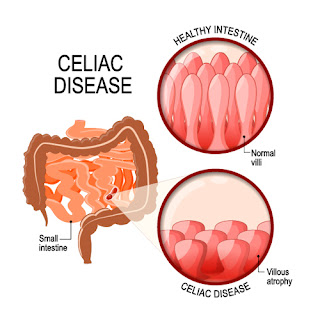What is Gluten, Who Should Avoid Gluten & Who Should Not Avoid Gluten?2020.
Gluten/ Gluten Meaning :
Gluten is a protein naturally found in wheat, barley, & rye .Gluten contain mixture of two protein glutenin & gliadin when flour made from grinding these grain is mixed with water the two proteins combine & form gluten.
- Gluten acts like a binder, holding food together and adding a "stretchiness".
- Gluten helps food to maintain their shape, acting as a glue that holds food together.
Gluten free-diet becoming too much popular or trending these day. Gluten is a controversial topic these days most sources claim that it is safe for everyone except those people who have celiac disease. On other hand some health experts believe that gluten is harmful to most people. Vast majority of people avoiding gluten is not necessary.
Make sure that choose healthful foods & go for complete food.
Gluten Containing Foods:
- Beer & product usually contain barley.
- Cake & other baked goods.
- Cereals & cereal containing products(Wheat, Rye, Spelt, Barley, Amelcorn)
- Sauces & gravies
- Candies
- Wafers
Gluten-Free Grains:
- Sorghum
- Millets
- Brown rice
- Buckwheat
- Wild rice
- Amarnath
- Quinoa
- corn
- Teff
- Oats(Oats are naturally gluten free but can be contaminated while processing)choose when it tag as a gluten free.
Who Should Not Avoid Gluten?
Gluten free diet It is risk for those people who are not suffering from any gluten sensitivity or gluten intolerance.
Lack of Essential Vitamins & Nutrients:
If some people are avoiding gluten containing grain without any health issues can leads to so many of nutrients deficiencies. Food with gluten can be a great source of :
- Vitamin B
- Folic acid
- Iron
- Zink
- Niacin
- Thiamine
- Riboflavin
- Calcium
- Phosphorus
Vitamin B
Lack of Fibers:
Whole wheat flour or whole wheat products are excellent source of dietary fiber. By cutting such products from a diet leads to deficient in fibers. Others foods can provide these fibers but generally non are so rich in fibers as whole wheat. Fiber is a critically important nutrients in your everyday diet. Dietary fiber promotes healthy digestion, reduce cholesterol, improve cardiovascular health, control blood sugar levels & diabetes.
Risk of Type 2 Diabetes:
Adopting a gluten free diet may not be healthier choice. A healthy diet is key to preventing diabetes. whole grains need to be eaten at every meal. Multiple studies show that whole grains protects us from disease & provide important energy. A healthy diet is all about balance.
Weight Gain:
In some cases, it can actually lead to weight gain. People who don't have celiac disease and go gluten free can experience weight gain from gluten free foods and as a result of an imbalanced diet. Going for gluten free without any medical issues leads risk.
Who should Avoid Gluten?
Gluten is only bad for only those people suffering from gluten-sensitive or gluten intolerance. No need to avoid if your not suffering from any gluten sensitivity. In gluten intolerance bodies produce an abnormal immune response when breaking down gluten during digestion.
1) Celiac Disease :


Celiac disease, celiac sprue, nontropical sprue, or gluten-sensitive enteropathy is an autoimmune disorder that's triggers when you eat gluten. When you eat gluten containing food there body overreacts to the gluten and damage their villi, (small finger like projection) found along the wall of their small intestine. When it's damaged small intestine can't properly absorbed nutrients from food.
Symptoms:
Non-Celiac Disease :
The term non-celiac gluten sensitivity(NCGS) and non-celiac wheat sensitivity(NCWS) are generally used to refer this condition, when removing gluten from the diet resolves symptoms, after testing negative form celiac disease and wheat allergy. Person with NCWS feels similar symptoms to those of celiac disease but did not have any intestinal damage.
Irritable Bowl Syndrome:
The chronic gastrointestinal disorder called irritable bowel syndrome(IBS) is a condition affected by gluten. It is a common disorder that affects the large intestine. IBS is a chronic condition that you will need to manage long term.



Comments
Post a Comment
If you have any doubt please let me know...